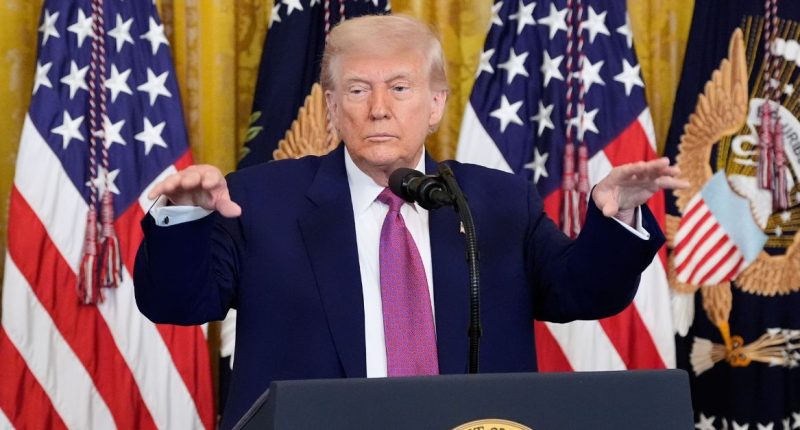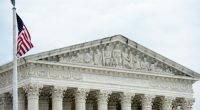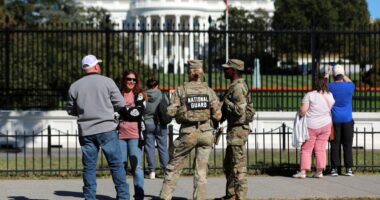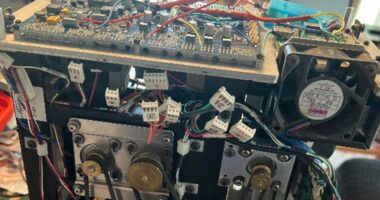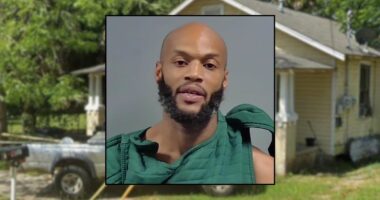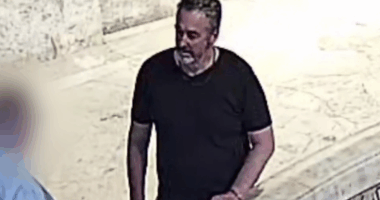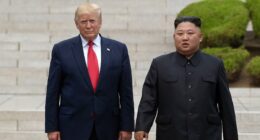Share this @internewscast.com
President Donald Trump addresses the audience after signing a bill that nullifies California’s mandate banning the sale of new gas-powered vehicles by 2035. This event took place in the East Room of the White House on Thursday, June 12, 2025, in Washington (AP Photo/Alex Brandon).
The judge presiding over California’s case to withdraw the National Guard from Los Angeles remains engaged with the legal proceedings, albeit not rushing to issue a decision on the unresolved points.
In an unexpectedly brief court session on Friday, U.S. District Judge Charles R. Breyer, a nominee of Bill Clinton and sibling of former U.S. Supreme Court Justice Stephen Breyer, indicated that more written arguments would be needed from the legal representatives on both sides before progressing in the debate over presidential authority.
Both the plaintiffs, California and its Democratic Gov. Gavin Newsom, and the defendants, the U.S. Department of Justice representing the Trump administration, likely anticipated hashing out the merits of the case. But such arguments were not to be — at least not yet.
The judge blamed a jurisdictional wrinkle for the delay.
Love true crime? Sign up for our newsletter, The Law&Crime Docket, to get the latest real-life crime stories delivered right to your inbox.
Late Thursday night, a panel on the U.S. Court of Appeals for the 9th Circuit stayed the temporary restraining order (TRO) issued by Breyer on June 12 — this was after, and in addition to, the same appellate panel administratively staying the TRO on appeal on June 13.
The initial stay was a brief pause so the broader stay requested by the DOJ could be considered after full briefing and argument — a process which happened fast due to the pressing nature of the dispute. After considering those arguments, U.S. Circuit Judges Mark Bennett and Eric Miller, both appointed by President Donald Trump, and Jennifer Sung, a Joe Biden appointee, ruled that reviewing courts must be “highly deferential” when presidents deploy the National Guard.
But the 9th Circuit also did something else — they converted the TRO into a preliminary injunction.
That added a new dimension to the dispute.
“My role is to follow precisely and impartially the opinions of the Ninth Circuit and the U.S. Supreme Court,” Breyer said. “The TRO that I issued — which would have expired in 14 days — has been converted into a preliminary injunction by the 9th Circuit, And, so, I don’t have jurisdiction over the preliminary injunction.”
The judge explained that, because the TRO was turned into a preliminary injunction, he had his jurisdiction on most of the issues stripped by the appellate court — effectively leaving little left at the district court level.
Little but not all.
The judge went on to note that in his initial order, he declined to rule on the plaintiffs’ claims under the Posse Comitatus Act (PCA) because they were too premature.
“It’s not clear to me the 9th Circuit’s ruling divests this court of its usual authority,” Breyer said.
Now, the court wants the parties to brief that issue — and to preview such briefing by arguing jurisdictional issues.
Jane Riley, representing California, spoke up to say her clients did not believe the 9th Circuit’s ruling addressed the issue.
The court agreed.
“They didn’t say anything about the Posse Comitatus Act,” Breyer laughingly explained. “You didn’t appeal it and they didn’t address it. Now the question is: what do I do about the Posse Comitatus Act and your claims in respect to it.”
The judge went on tell the parties to file their briefs by Monday.
“I’m actually interested in what authority I have,” Breyer said. “Maybe I’ll have a hearing. I don’t know. You’re going to tell me what to do. My guess is you might disagree.”
Riley spoke up again to say California believed there was a secondary live issue — one that was not covered by the original TRO and therefore had not been divested by the Ninth Circuit’s order.
That second live issue, Riley said, is the duration of the federalization order — or, how long Trump’s control over California’s National Guard can last.
“We would also want the court to address the duration of the order,” Riley said.
The judge acknowledged the secondary issue and quickly quizzed DOJ attorney Eric Hamilton to clarify the facts as the Trump administration sees them in regards to the time limit issue.
Hamilton said the order expires in 60 days “or at the discretion of the secretary of defense.”
The judge, somewhat surprised-sounding, suggested this was effectively a claim of indefinite control over the troops in question. In turn, he told both parties to address that issue in their briefs as well.
“Sorry I’m ruining everybody’s weekends, but there we are,” Breyer said — concluding the hearing.
